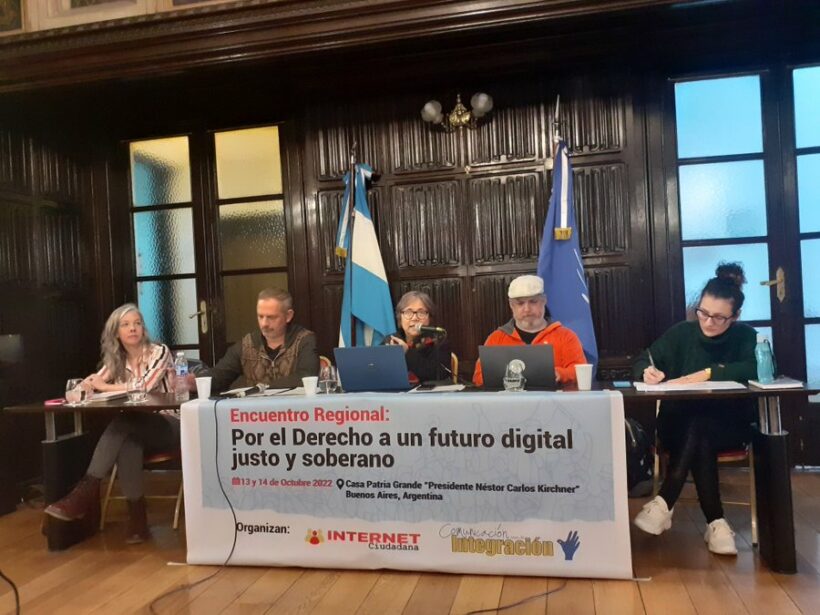Last Friday (14), the Regional Meeting “For the right to a just and sovereign digital future”, which took place over the course of two days in the Casa Patria Grande “President Néstor Carlos Kirchner”, came to an end in the city of Buenos Aires.
Through the different panels and collective debates, the participants tried to find answers to key questions for these times, such as: What individual and collective rights are being violated by this pro-corporate and unconsulted technological model? How to adapt the actions of the community and public policies in the digital sphere to favour the aspirations for social justice of the people? How to advance towards open, democratic, equitable and free digital technologies?
The event, organised by the Latin American-Caribbean space Internet Ciudadana and the Foro de Comunicación para la Integración de NuestrAmérica (FCINA), was attended by specialists, government officials, legislators, communicators, members of rural organisations, educators, technological production cooperatives, academics and trade unionists, who enriched the debates by contributing sectoral perspectives to the general mosaic.
At the same time, several presentations helped to frame the issue of the implications of the more general aspects of the current state of the internet and digital technologies.
The affirmation of the internet as a human right and connectivity as an essential service is one of the urgent issues to be tackled immediately and will be part of the action plan agreed at the meeting as a first priority.
The idea of the internet as a common good of the people is not only an abstract concept far removed from reality, but a social necessity, agreed the promoters of the proposal, for which it is necessary to raise awareness among broad sectors of the population in order to achieve a sufficient critical mass to achieve transformations.
Another highly relevant aspect was the realisation that there are free technology alternatives that need to be disseminated, for which training programmes are required, an aspect that will constitute one of the pillars of the roadmap proposed as one of the conclusions of the meeting. This will also help in a strategic sense to strengthen and consolidate a technological ecosystem that collaborates with fairer and more autonomous societies.
A central issue addressed is the question of ownership and management of data and data intelligence, an issue that forms one of the cornerstones of the economic model dominated by monopolistic transnational corporations, thereby increasing their already excessive power. To address this situation, the collectives that make up Internet Ciudadana intend to launch the “Our Data is Ours” initiative as part of their upcoming activities.
As a corollary of the meeting, which was attended by members of various organisations from more than fifteen countries in Latin America and the Caribbean, it was possible to consolidate a horizon of objectives to democratise technology and the digital sphere, which was embodied in the document “A 20-point agenda towards a just and sovereign digital future”.
In political terms, the unequivocal conclusion was that the structural inequalities and injustices of the current model can only be overcome through regional integration. Therefore, the meeting drafted a letter to be delivered to the Argentinean president Alberto Fernández, who currently holds the pro tempore presidency of the Community of Latin American and Caribbean States (CELAC), so that the latter addresses the digital issue as a crucial aspect for emancipation and decolonisation.
The final plenary also approved the motion to issue a statement against the extradition of Julian Assange to the United States.










